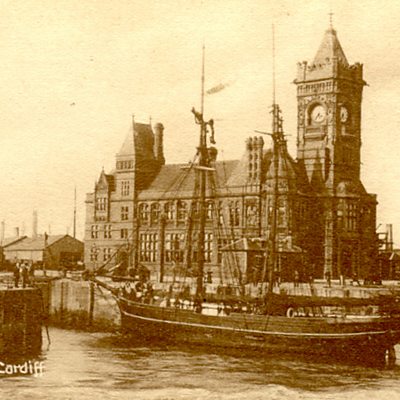Episode details

Available for over a year
In 1914, women in Cardiff were forbidden to enter pubs between the hours of 7pm and 8am. Not only that, but women of ‘a certain character’ (ie. suspected prostitutes) could be arrested simply for being out on the streets during those hours. Effectively, Cardiff women faced a curfew, and if they broke it, they faced court martial before a panel of four less than sympathetic military gentlemen. The Defence of the Realm Act or ‘DORA’, as it was more commonly known, allowed the commanding officer for the district to do everything in his power to crack down on excessive drinking and sexual misdemeanours. There was, after all, considerable concern that the spread of venereal disease could do more to undermine the British cause than any of the Kaiser’s deadliest missiles. In Cardiff the highest authority was Colonel East, who was in charge of the Severn Defences. East imposed a crackdown on Cardiff’s women drinkers, and on Friday November 25th Cardiff police managed to pick up five women of ‘a certain class’, who were then brought before a military court, and faced stringent custodial sentences. Not surprisingly, the crackdown was condemned by women’s groups and even some male politicians, but that condemnation was by no means universal. Other cities in Wales looked at Cardiff’s example with admiration. The Western Mail reported one former publican in Cardiff as saying that in his experience most ‘disturbances on licensed premises are for the most part caused by women’ and that women should be ‘debarred’ altogether! Location: Bute Street, Butetown, CF10 5HQ Image from the Eric Williams collection
Programme Website